Technological advancements in data and AI have allowed for the expansion of healthcare technologies. Ranging from new vaccine development with the help of AI to data sequencing using data from the smartwatch, the opportunities for growth in healthcare through data are endless. But despite the rapid technological advancement, there are still many data challenges in healthcare that practitioners face.
Hospitals and care providers are increasingly recognizing the immense potential of data in driving improvements across various aspects of healthcare delivery and management. The utilization of big data in healthcare has witnessed rapid growth, with hospitals turning to big data development service providers to make sense of their operational data.
According to Vantage Market Research, the global big data market in the healthcare industry is projected to attain a value of $195.17 Billion USD by 2030, growing at a compound annual growth rate (CAGR) of 28.80%. This significant investment is indicative of the transformational power data holds in revolutionizing healthcare systems worldwide.
The Role of Data in Healthcare
Data is at the heart of healthcare transformation and evolution, driving informed decision-making, optimizing operational efficiency, enhancing patient care, and ultimately improving outcomes.
From electronic health records (EHRs) to wearables and IoT devices, care systems are currently generating vast amounts of data. This data flood provides an incredible opportunity for insights, enabling healthcare providers to gain a deeper understanding of information such as patient populations, disease patterns, treatment efficacy, and resource utilization.
This helps drive the shift from a reactive to a proactive approach in healthcare, as the data analysis allows care providers to identify trends, predict outbreaks, and tailor interventions. Data is the key to preventing pandemics and finding cures to improve human life as a whole.
Big Data Utilization in Healthcare
The utilization of big data in healthcare is multifaceted and encompasses a wide range of applications, each enhancing healthcare delivery such as:
Clinical Decision Support: Big data analytics assist practitioners in making well-informed decisions by providing real-time access to patient histories, clinical guidelines, drug interactions, and treatment outcomes. This improves diagnosis accuracy, reduces errors, and enhances patient safety. For example, using real-time alerts for immediate care when monitoring patients at home, preventing unnecessary hospital visits.
Population Health Management: Big data enables the identification of high-risk patient populations, helping care providers allocate resources more effectively and design targeted interventions to prevent diseases and complications. For example, understanding Tuberculosis (TB) trends in low-income populations to come up with data-driven prevention strategies to reduce the risk of TB in these neighbourhoods.
Predictive Analytics: By analyzing historical data, big data tools can predict disease outbreaks, patient readmissions, and treatment responses. This predictive capability allows care systems to allocate resources efficiently and plan for potential surges in demand. For example, doctors can utilize algorithms to predict symptoms after discharge, and provide recommendations and support to patients, preventing rehospitalization.
Drug Discovery and Development: Data-driven insights expedite drug discovery by identifying potential drug candidates and predicting their efficacy. This accelerates the research and development process, reducing costs and improving success rates. For example, scientists developed computer-aided drug discovery (CADD) to create molecular modelling and create millions of compounds in a virtual library to be screened against known 3D structures of a target protein.
Operational Efficiency: Healthcare institutions use data analytics to optimize workflows, manage inventory, and reduce patient wait times. This enhances resource allocation and overall operational efficiency.

Benefits of Using Big Data in Healthcare
The adoption of big data analytics in healthcare offers numerous benefits, impacting various stakeholders across the healthcare ecosystem:
- Improved Patient Outcomes
Data-driven insights enable personalized treatment plans, reducing trial-and-error approaches and ensuring that interventions are tailored to individual patient needs.
- Enhanced Patient Engagement
Wearable devices and mobile apps collect real-time patient data, fostering active patient participation in managing their health and wellness.
- Cost Reduction
By streamlining operations, reducing unnecessary procedures, and preventing hospital readmissions, healthcare practitioners can reduce costs by optimizing staff, equipment, capacity, and treatments, and improving the drug supply chain.
- Early Disease Detection
By analyzing large datasets such as environmental, historical, and generational patient information, healthcare systems can detect disease patterns early, ultimately enabling timely interventions and preventing the progression of illnesses sooner rather than later.
- Research Acceleration
Big data expedites research by providing researchers with comprehensive datasets for analysis, enabling faster insights into disease mechanisms and treatment plans.
The Major Challenges in Healthcare Data Utilization
While the potential benefits of using big data in healthcare are infinite, there are several significant challenges currently hindering organizations from seamlessly implementing the adoption of big data. The main challenges faced include:
Security & Privacy
One of the most critical concerns in healthcare data utilization is ensuring the security and privacy of highly sensitive patient information. According to the IBM 2022 report “Cost of a Data Breach”, the average healthcare data breach costs organizations approximately $10.10 million— which is more than twice the average cost of all breaches across all industries. As data breaches have become increasingly common, healthcare organizations must implement robust cybersecurity measures to protect patient data from unauthorized access and malicious attacks.
SOLUTION: Implementing robust encryption, access controls, and authentication mechanisms can help safeguard patient data. Compliance with regulations such as the Health Insurance Portability and Accountability Act (HIPAA) is essential to maintain patient trust.
Data Quality
The accuracy and reliability of data play a pivotal role in deriving meaningful insights. Healthcare data is often diverse and expansive, originating from multiple sources with varying formats and levels of accuracy. This can create data silos that hinder the efficiency and effectiveness of patient care. The lack of standardized data formats across healthcare systems makes it near-impossible to successfully integrate and analyze data from multiple sources. Ensuring data quality and integrity is essential to avoid inaccurate conclusions and diagnoses based on flawed information.
SOLUTION: Standardizing data collection processes, implementing data validation checks, and employing data cleansing techniques can enhance the accuracy and reliability of healthcare datasets. Data standardization efforts are necessary to facilitate interoperability and seamless data exchange.
Data Literacy
Healthcare professionals and administrators must possess the necessary data literacy skills to understand and interpret complex datasets. The lack of data literacy can hinder effective decision-making and limit the potential benefits of data analytics.
SOLUTION: Healthcare organizations should invest in data literacy training programs to enhance the data literacy of their staff, ensuring that professionals can effectively interpret and use data in decision-making.
Data Bias
Biases present in healthcare data can lead to inequities in treatment and outcomes. If not addressed, these biases can perpetuate disparities in care delivery and hinder the goal of providing equitable care to all patient populations. A real-life example of this can be found in lung and skin cancer detection tech, where it has been known to be less accurate for darker-skinned individuals – resulting in failure to flag cancer patients and delaying life-saving care. Unfortunately, this is only one of the many examples of marginalized people experiencing the effects of biased data.
SOLUTION: Addressing Data Bias – organizations should actively monitor and address biases in data collection and analysis. Regular audits and the use of bias-detection algorithms can help identify and rectify biases.
Data Strategy
Developing a comprehensive data strategy that aligns with organizational goals and regulatory requirements is crucial. Many healthcare institutions struggle to create and implement effective data strategies that balance innovation with compliance.
SOLUTION: Developing a clear data strategy that outlines goals, roles, responsibilities, and compliance measures is essential. This strategy should be regularly reviewed and adapted to evolving needs. Hiring a data strategy consultant is an effective way to gain a broader perspective, while also gaining actionable strategies from data industry leaders.
The Future of Data in Healthcare
As the healthcare industry continues to harness the power of big data, several trends are likely to shape its future. Advanced machine learning algorithms will enable more accurate predictions of disease outbreaks and patient outcomes. The integration of genomic and clinical data will lead to personalized treatment plans tailored to an individual’s genetic makeup and health history. Telemedicine and remote patient monitoring will continue to generate vast amounts of real-time patient data, which enhance care providers’ ability to deliver timely interventions. However, this calls for stricter regulations and ethical considerations, as the use of data will only continue to grow.
Ready to unlock your organization’s full potential? Contact us today and transform your organization’s data challenges into opportunities.


